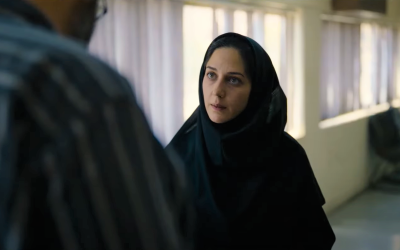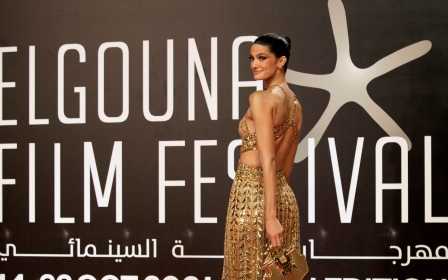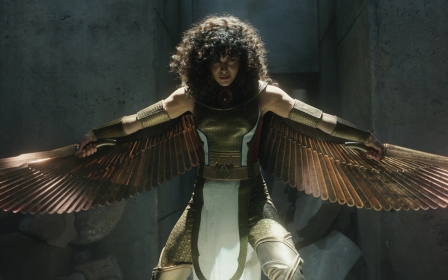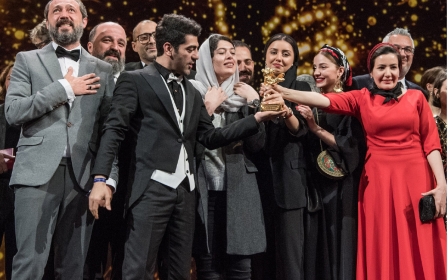Iran's Zar Amir Ebrahimi wins best actress award at Cannes
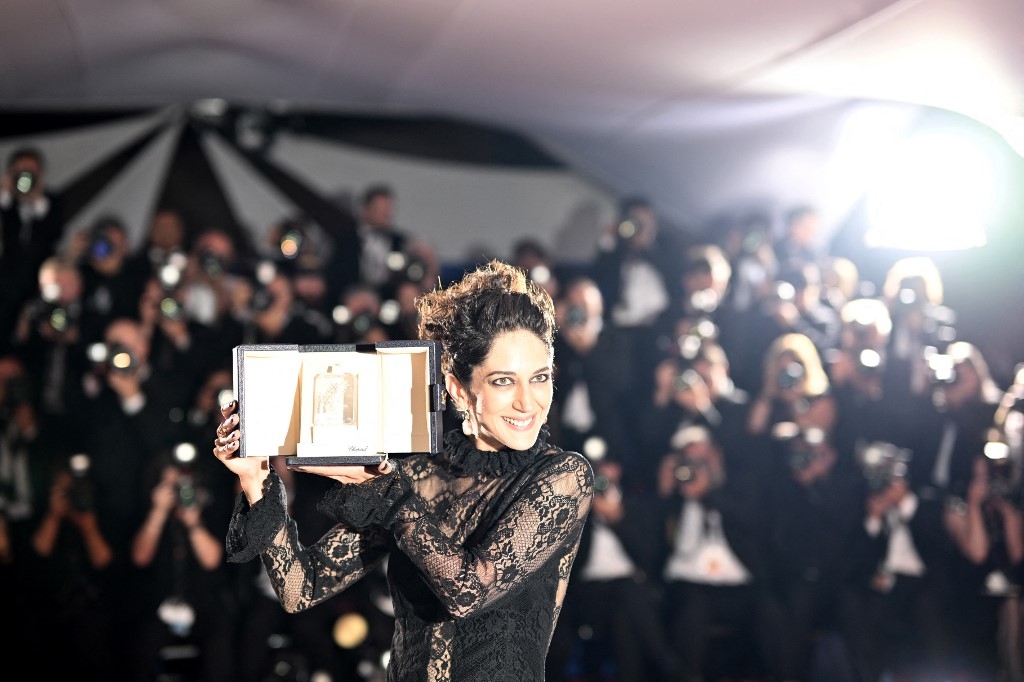
The 75th Cannes Film Festival on Saturday awarded its best actress award to Iranian Zar Amir Ebrahimi, who lives in exile in France, for her role in Holy Spider.
In the movie, she plays a journalist trying to solve the serial murders of prostitutes in the Iranian holy city of Mashhad.
"I have come a long way to be on this stage tonight," she told the audience at the awards ceremony.
"It was not an easy story, it was humiliation, it was solitude, but there was cinema. It was darkness, but there was cinema. Now I'm standing in front of you on a night of joy."
'It was not an easy story, it was humiliation, it was solitude... Now I'm standing in front of you on a night of joy'
- Zar Amir Ebrahimi, best actress, Cannes Film Festival
Holy Spider, directed by Iran-born, Denmark-based Ali Abbasi, was inspired by the true story of a working-class man who killed prostitutes in the early 2000s and became known as the "Spider Killer".
New MEE newsletter: Jerusalem Dispatch
Sign up to get the latest insights and analysis on Israel-Palestine, alongside Turkey Unpacked and other MEE newsletters
Abbasi was denied permission to film in Iran, and it was ultimately shot in Jordan. It is expected that the film will be banned in Iran.
Ebrahimi became a star in Iran in her early twenties for her supporting role in one of the country's longest-running soap operas, Nargess.
But her life and career fell apart shortly after the show ended, when a sex tape was leaked online in 2006 which, it was claimed, featured her.
Ebrahimi's character in Holy Spider has also been a victim of lascivious rumours and male predation.
The film suggests there was little official pressure to catch the murderer, who ends up a hero among the religious right.
"This film is about women, it's about their bodies, it's a movie full of faces, hair, hands, feet, breasts, sex - everything that is impossible to show in Iran," Ebrahimi said.
"Thank you, Ali Abbasi, for being so crazy and so generous and for directing against all odds this powerful thing."
Cinema, she added, has "practically saved my life".
Egypt film wins best screenplay
Swedish-Egyptian filmmaker Tarik Saleh took best screenplay at Cannes for Boy From Heaven, a thriller set in Cairo's al-Azhar Mosque.
Saleh rose to fame with the 2017 Egypt-set crime noir blockbuster, The Nile Hilton Incident.
After a successful stint in Hollywood where he directed an episode of Westworld and the action thriller The Contractor, Saleh returned to Egypt for Boy From Heaven, which details the power struggle that erupts at al-Azhar following the sudden and dramatic death of the grand imam.
Following in the footsteps of Nile Hilton, this is another exploration of the various contesting authorities governing Egypt.
While his earlier work focused on police corruption, Boy From Heaven turns its attention to the nation's highest religious authority, whose close ties with the political establishment are a well-known but taboo subject that has not been explored in cinema before.
The production of Nile Hilton was notoriously shut down by the Egyptian authorities, and the film was subsequently banned.
Boy From Heaven, which was shot at Istanbul's Suleymaniye Mosque and is fronted by a cast of non-Egyptians, is expected to cause uproar in a country now known for its intolerance of any critical work showcased in international arenas.
"People ask me if it was worth it that I can no longer go back to my second home," Saleh said in his acceptance speech in Cannes.
"Of course it's not. Egypt is probably my favourite place in the world, but this film had to be made. I want to dedicate this prize to the young filmmakers in Egypt to raise your voice and tell your story."
This article is available in French on Middle East Eye French edition.
Middle East Eye delivers independent and unrivalled coverage and analysis of the Middle East, North Africa and beyond. To learn more about republishing this content and the associated fees, please fill out this form. More about MEE can be found here.


